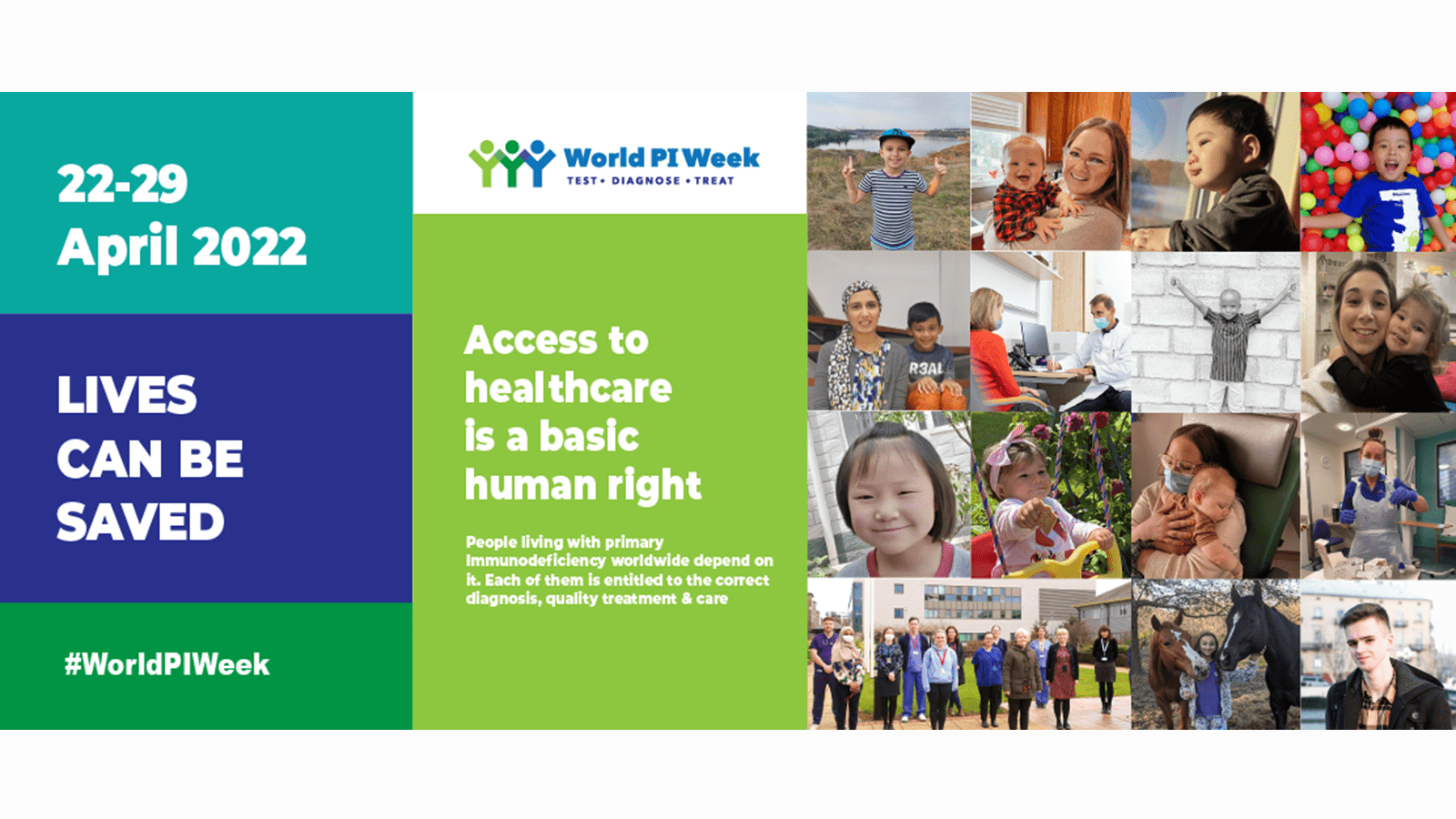World PI Week begins April 22 but this annual occasion needs you.
First celebrated in 2011, World PI Week presents an opportunity to educate the general public about primary immunodeficiencies, also called PIs or PIDs. The awareness days succeed best when people make it personal and explain how rare disorders affecting the immune system impact their lives, said Otilia Stanga, Board Member with the International Patient Organisation for Primary Immunodeficiencies (IPOPI).
“I strongly believe that speaking about your own personal story, making it a visible and rightful part of the public discourse from your own personal standpoint is one of the most efficient ways of getting involved in raising awareness about primary immunodeficiencies,” Stanga said.
World PI Week, from April 22-29, presents an opportunity to interact with health policymakers, school students and community members. That could mean sharing your voice though the World PI Week website, taking to social media with a message of community support, or contacting a local or national representative who can assist you in sparking change. Click here to find resources to help you get started.
An estimated 6 million people worldwide are affected by PIs, of which there are more than 400 different types. So all together PIs are not so rare, as the Jeffrey Modell Foundation often says. Telling a personal story can help humanize the cause beyond just the statistics, Stanga said.
“Many times, it may seem that speaking about your own personal situation as a patient or as someone close to a patient is only a drop in the ocean, that it can’t really make a difference. But I think that each and every personal story publicly told, each and every gesture of making visible the specific problems of patients is an important way of giving public visibility to issues that are otherwise so easily ignored,” she said.
Several events are planned, including some, such as podcasts, that can be enjoyed anywhere in the world. Chat with others, find allies and work together to raise awareness so that patients receive faster diagnoses and the best, most appropriate treatment. The lineup of activities shows the community’s commitment to education and also to having a little fun.
- Each week for the entire month of April, the World PI Week website will release podcasts that cover topics like early diagnosis, treatment and care, preventative medicine and research, through conversations with experts, patients, nurses and or researchers.
- IPOPI’s photo contest “My Physician and I” makes visible an important aspect of living with a PID: the relationships that form between medical professionals and patients coping with a condition that takes up a lot of time as well as physical and mental energy.
All over the world people who support the cause are finding creative ways of sharing their message. IPOPI’s Italian member is preparing a theatrical show inspired by the life of the PI patients; Uganda will involve Village Health Teams who are trying to raise awareness about PIDs in the rural areas; and a Chinese member of IPOPI is hosting “Jump for PI”, a sports event with jump ropes.
Though World PI Week has a serious purpose, Stanga said she appreciates the events that focus on fun because, she says, “besides the difficult parts of living with a PID, there is always space for joyfulness.”
Learn more about World PI Week and how to participate.
April is also National PI Awareness Month in the United States. Find resources from the Immune Deficiency Foundation to help spread the word about PIs.



